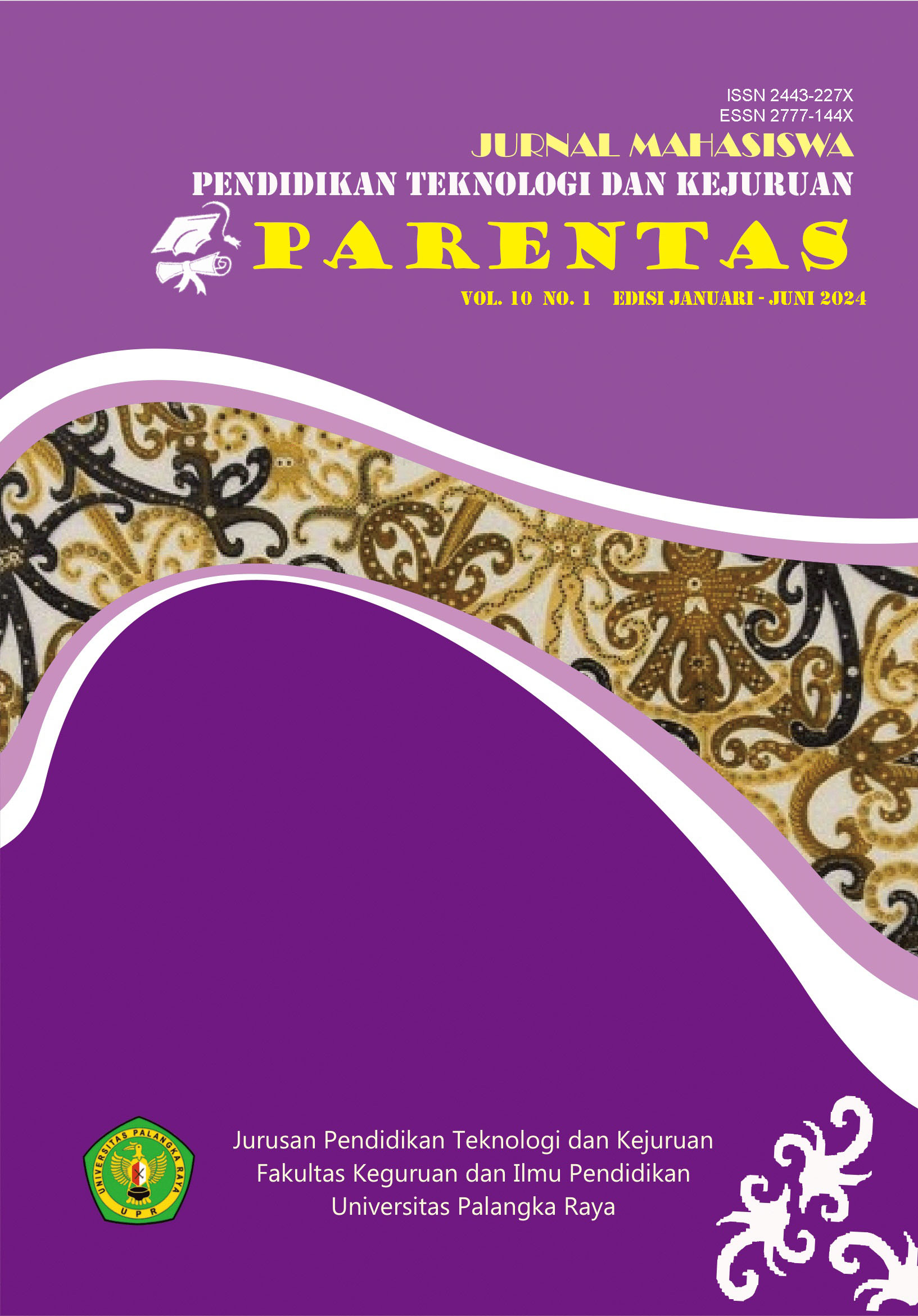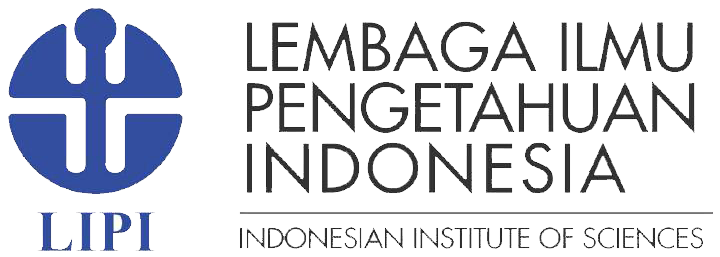ANALYSIS OF STUDENTS' LEARNING DIFFICULTIES IN COMPLETING ROLE PLAYING PROJECTS SEMINAR COURSES MECHANICAL ENGINEERING EDUCATIONAL STUDY PROGRAM PALANGKA RAYA UNIVERSITY
DOI:
https://doi.org/10.37304/parentas.v10i1.14551Keywords:
Analysis of Student Learning Difficulties, Role Playing Projects, Seminar Subjects, Internal Factors, External FactorsAbstract
The Teaching and Education Faculty (FKIP), especially the Mechanical Engineering Education Study Program at Palangka Raya University, seminar courses are compulsory subjects in Semester Seven. The factors that influence the learning difficulties experienced by Mechanical Engineering Education students can be classified into two, namely internal factors and external factors. The purpose of this study was to analyze what factors cause student learning difficulties in completing the Role Playing project in the Mechanical Engineering Education Study Program seminar course. The research used in this research is mix methods research. This research was conducted at the Mechanical Engineering Education Study Program, University of Palangka Raya, which is located at Jl. Yos Sudarso, Palangka, District. Jekan Raya, Palangka Raya City, Central Kalimantan. In this study, the subjects were Mechanical Engineering Education students who experienced difficulties in learning seminars in the odd semester of the 2021/2022 academic year. The research subjects have been selected as many as 31 students. This study uses a questionnaire instrument as a tool to collect data in the form of numbers. The research results show that the factors causing student learning difficulties in completing the Role Playing project in the Mechanical Engineering Education Study Program seminar course are viewed from: 1) Internal factors, namely the health indicator is 77%, the interest indicator is 87%, the talent indicator is 74%, the motivation indicator is 55%, indicators of cognitive abilities that are equal to 55%, indicators of study habits that are equal to 74%, indicators of understanding of learning objectives that are equal to 61%; 2) External factors, namely the lecturer's ability indicator, which is 77%, the lecturer's teaching method indicator, which is 77%, the study program's social environment indicator, which is 71%, the learning building condition indicator, which is 84%, the parental support indicator, which is 77%, An indicator of the student's economic condition is 71%.
Downloads
Downloads
Published
Issue
Section
License
Copyright (c) 2024 PARENTAS: Jurnal Mahasiswa Pendidikan Teknologi dan Kejuruan

This work is licensed under a Creative Commons Attribution-NonCommercial 4.0 International License.


















